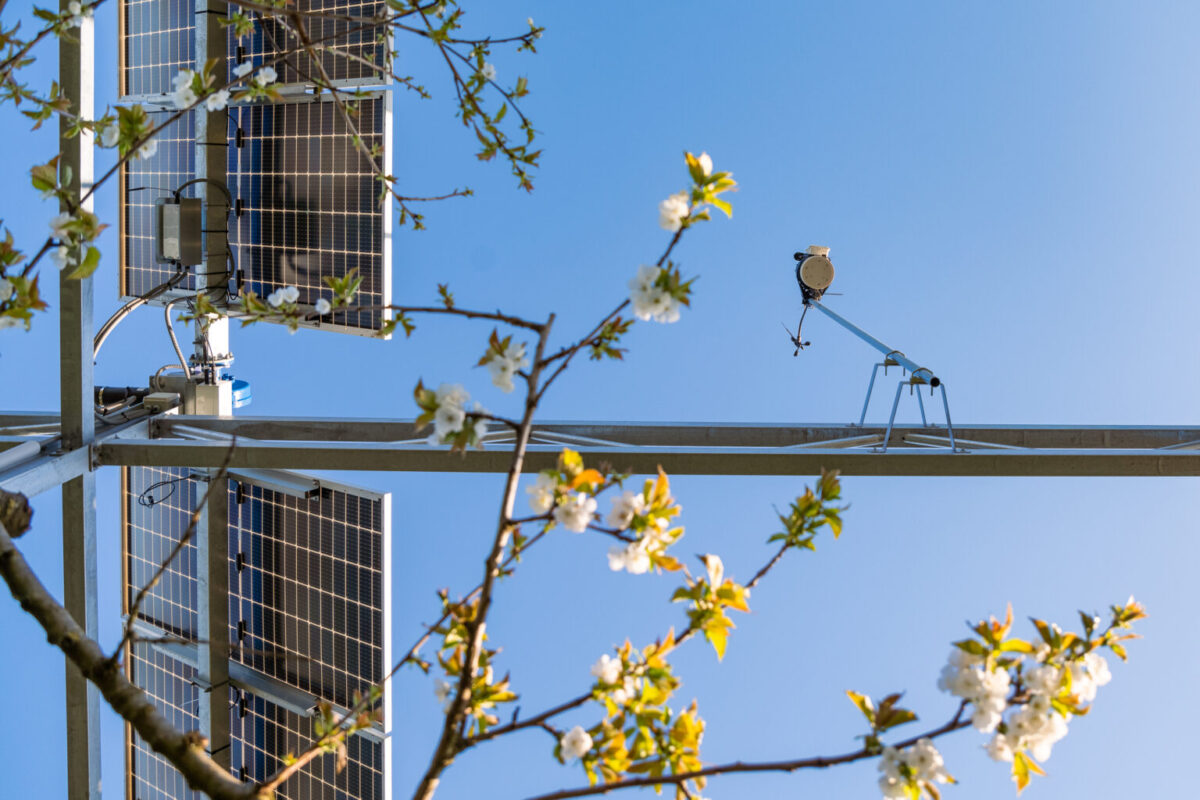From pv magazine France
Amidst an ongoing heatwave in southern France, Sun'Agri, a French agrivoltaics specialist, has released its latest findings on the impacts of its technology on water resource management.
The company conducted an analysis on the effects of solar panels on apple, cherry, and nectarine trees across three sites in La Pugère, Etoile sur Rhône, and Loriol, southern France. The study demonstrated that the PV installations reduced temperature and increased relative humidity for the crops underneath the panels during hot weather, compared to reference areas without protection.
At the La Pugère site, shading from the panels resulted in a decrease of air temperature by 3.8 C and an increase in relative humidity of up to 14% between 2019 and 2021. On average, July temperatures were lowered by 1.2 C, and relative humidity increased by 2% over the same period.
The company also found that the agrivoltaic system contributed to water conservation, with irrigation inputs being up to 30% lower compared to reference areas (average reduction of 22% between 2019 and 2021). The reduction in irrigation was observed using flow meters installed along irrigation pipes. Control trees received more irrigation water to maintain water comfort.
The study also showed that water availability in the soil decreased less under the agrivoltaic structure. This effect was attributed to the microclimate regulation in the shade of the panels, which provided favorable conditions for the plants and reduced transpiration and irrigation.
Popular content
In addition, Sun'Agri reported that the water status of apple trees under the agrivoltaic structure remained superior to that of the control zone throughout the summer. During daylight hours, the water potential of apple trees under photovoltaic panels remained around 20% higher than that of the reference area, reflecting better water comfort for shaded trees despite reduced water supply.
These findings were supported by various indicators, including a decrease in potential evapotranspiration and a 63% reduction in water stress compared to the reference area, particularly during the intense heatwave in July 2019.
At the Etoile sur Rhône site, where nectarines are cultivated, temperature differences of 2 C to 3 C were recorded on a windless summer day in August 2022. Additionally, the company observed a 25% decrease in irrigation under the agrivoltaic system compared to the control area.
On the Loriol cherry farm, the minimum summer water status under agrivoltaics was around 30% to 40% more favorable than that of the control cherry trees, as measured on Aug. 31, 2022.) was also more favorable under agrivoltaics than that of the control cherry trees by around 30% to 40%.
This content is protected by copyright and may not be reused. If you want to cooperate with us and would like to reuse some of our content, please contact: editors@pv-magazine.com.



What were the relative crop yields in this study? That is rather the critical point, and there is no mention of it.